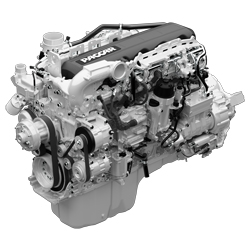B2775 Engine Code Repair
Meaning of B2775 engine trouble code is a kind of body trouble code and theoretically you can drive for a few weeks or even months with a broken MAF sensor. You will notice a decrease in gas mileage and over time the car will eventually start stalling a lot. At a shop, the replacement cost is between $240-$400 depending on the car, but that's usually the cost of parts because the labor is relatively simple.
B2775 Fault Symptoms :
- Check engine light comes on
- Engine stalling or misfiring
- Engine performance issues
- Car not starting
If one of these reasons for B2775 code is occuring now you should check B2775 repair processes.
Now don't ask yourself; What should you do with B2775 code ?
The solution is here :
B2775 Possible Solution:

Air Conditioning Pressure Sensor (ACP) Insufficient Pressure Change Each time the A/C clutch engages, the PCM is looking for a pressure change in the refrigerant. If the change in pressure is outside of the calibration the DTC will set. A/C system mechanical failure Open ACP or VREF circuit A/C sensor damaged A/C system electrical failure A/C clutch always engaged Verify A/C system function, including refrigerant charge.
B2775 Code Meaning :
B
OBD-II Diagnostic Body (B) Trouble Code For Engine
2
Fuel And Air Metering (Injector Circuit Malfunctions Only)
7
Fuel Temperature Sensor B Circuit Range/Performance
7
Cylinder 4 Contribution/Balance Fault
5
Timing Reference High Resolution Signal A Too Many Pulses
Regarding the B2775 code, it would probably be worthwhile to carefully inspect the wire harness near the intake manifold bracket. This is done most easily from below the car in the area near the oil filter.
B2775 OBD-II Diagnostic Body (B) Trouble Code DescriptionB2775 engine trouble code is about Timing Reference High Resolution Signal A Too Many Pulses.Main reason For B2775 CodeThe reason of B2775 OBD-II Engine Trouble Code is Fuel Temperature Sensor B Circuit Range/Performance. |
B2775 code on vehicles with electronically controlled automatic transmissions, the 3-4 shift solenoid is responsible for actuating the hydraulic circuits to activate clutches or bands that change gears inside the automatic transmission.
